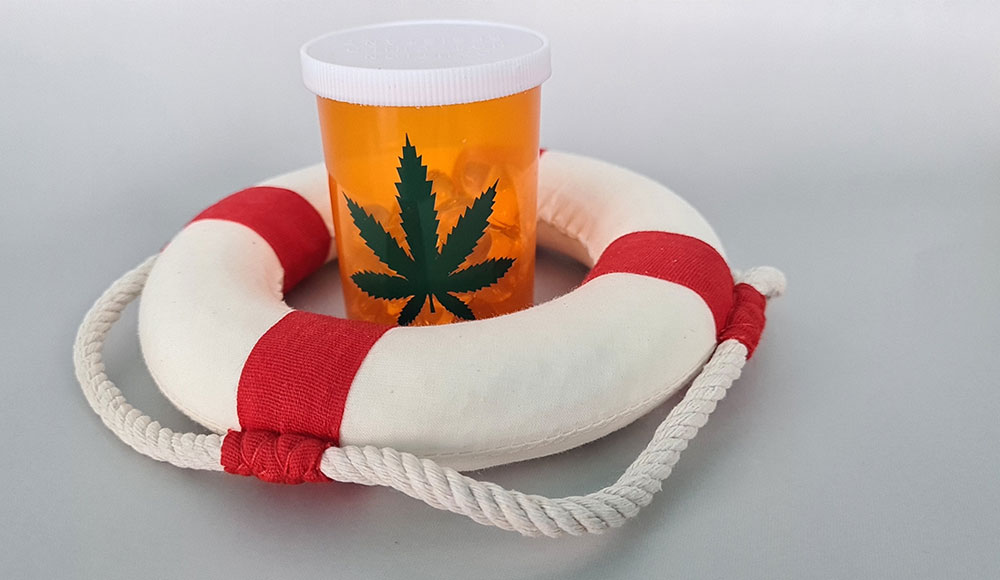Although there has been a relative lack of scientific studies of cannabis over the years (thanks to pot being illegal for most of modern U.S. history), some subjects have gotten enough scrutiny that conclusions can be drawn. Among the most solid of them is that it’s all but certain that weed is highly effective in getting people off opiates.
Since states started legalizing pot about a decade ago, researchers have been studying the effects that legal weed, in particular, have had on opiate addiction. A major challenge for them, though, has been the varying timelines of legalization. Although the general conclusion of most research is that pot helps people get off opioids, the level of effectiveness has been hard to measure. A newly released study (completed in 2023, but published last month), which looked specifically at mortality rates, claims to have solved this problem.
Many studies have looked at rates of addiction, but relatively few have examined how many overdose deaths might be prevented thanks to legal weed, as this one did.
“Although the causal effects of marijuana legalization on opioid mortality rates is a well-examined topic, there is no general consensus on the direction and magnitude of its effects,” according to researchers from Texas Tech University and several other institutions. They point out that results of previous studies, while adding to the consensus that cannabis use is effective for ending opiate addiction, have shown widely varied results, making it hard to determine just how effective it is. “Most studies examining the effect of staggered marijuana legalization policies in the U.S. suffer from this problem, which partly explains the inconsistent estimates,” the researchers said.
The effectiveness of state-level legalization of adult-use cannabis grows over time. While a few states started legalizing nearly a dozen years ago, others legalized just this year. The results vary greatly from state to state.
By accounting for the time disparities, the researchers concluded that there is a “consistent negative relationship” between legalization and fatal overdoses, with more significant effects in states that legalized cannabis earlier in the opioid crisis.
“Recreational marijuana legalization (RML) is associated with a decrease in approximately 3.5 deaths per 100,000 individuals,” the study concluded. “Broadening recreational marijuana access could help address the opioid epidemic. Previous research largely indicates that marijuana (primarily for medical use) can reduce opioid prescriptions, and we find it may also successfully reduce overdose deaths.”
Crucially, they said, “this effect increases with earlier implementation of RML.” Furthermore, the effects are apparent almost immediately after legalization, but become stronger with time and, in their study, “persisted after five years.”
“Groups that implemented RML in later years do not have as much post-treatment data, but their short-term trends are consistent with the effects in the first group of states,” the study noted.
Several points are important to note: first, the study has not yet been peer reviewed. Also, it didn’t examine hospitalizations, overdoses that didn’t result in death, or any “abuse measures” other than overdose fatalities. And, while the results appear to be pretty solid, the researchers warn that it looked only at states where pot has been legalized for adult use, so the earliest data is just 11 years old, while other data is much newer. “This,” they said, “limits our ability to assess longer-term effects on opioid overdose deaths and related variables.”
Opioid misuse often begins with a legal prescription, usually for pain. The use of cannabis to relieve pain has been established fairly solidly, although it can vary greatly among various types of pain and by what the underlying maladies are. So far, the only use of medical cannabis officially sanctioned by the U.S. government is to treat certain types of seizures. In 2018, Epidiolex became the first, and so far only, FDA-approved drug derived from cannabis.
As more research piles up confirming pot’s pain-reducing effects, it seems likely that, eventually, the FDA will approve more medications that will address the kinds of maladies that lead to opioid addiction. Of course, that will become a lot easier once the federal government legalizes weed for all American adults.
H/T: news.google.com
You can view the whole article at this link Rx for OD?



